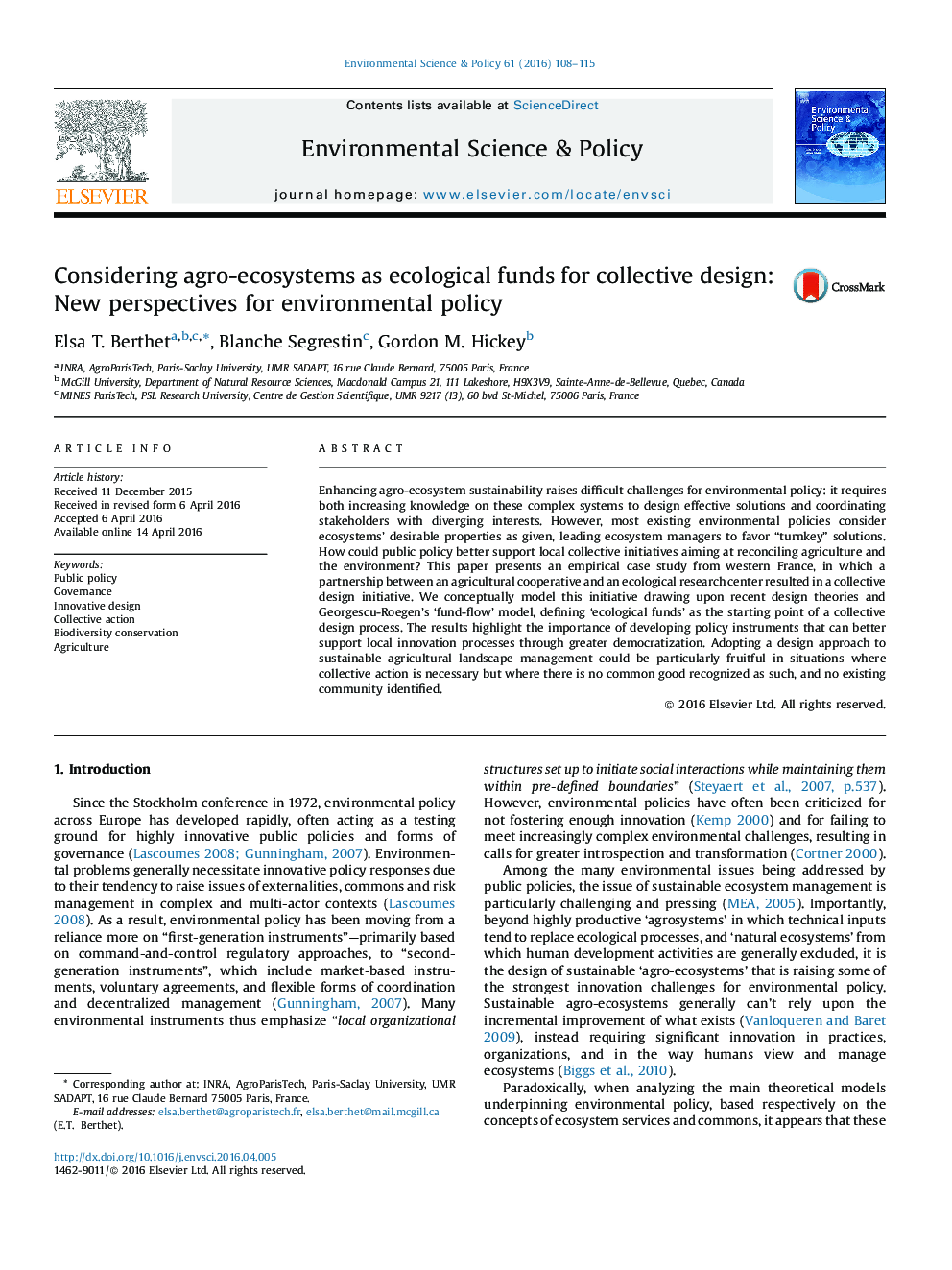| Article ID | Journal | Published Year | Pages | File Type |
|---|---|---|---|---|
| 7466844 | Environmental Science & Policy | 2016 | 8 Pages |
Abstract
Enhancing agro-ecosystem sustainability raises difficult challenges for environmental policy: it requires both increasing knowledge on these complex systems to design effective solutions and coordinating stakeholders with diverging interests. However, most existing environmental policies consider ecosystems' desirable properties as given, leading ecosystem managers to favor “turnkey” solutions. How could public policy better support local collective initiatives aiming at reconciling agriculture and the environment? This paper presents an empirical case study from western France, in which a partnership between an agricultural cooperative and an ecological research center resulted in a collective design initiative. We conceptually model this initiative drawing upon recent design theories and Georgescu-Roegen's 'fund-flow' model, defining 'ecological funds' as the starting point of a collective design process. The results highlight the importance of developing policy instruments that can better support local innovation processes through greater democratization. Adopting a design approach to sustainable agricultural landscape management could be particularly fruitful in situations where collective action is necessary but where there is no common good recognized as such, and no existing community identified.
Keywords
Related Topics
Physical Sciences and Engineering
Energy
Renewable Energy, Sustainability and the Environment
Authors
Elsa T. Berthet, Blanche Segrestin, Gordon M. Hickey,
